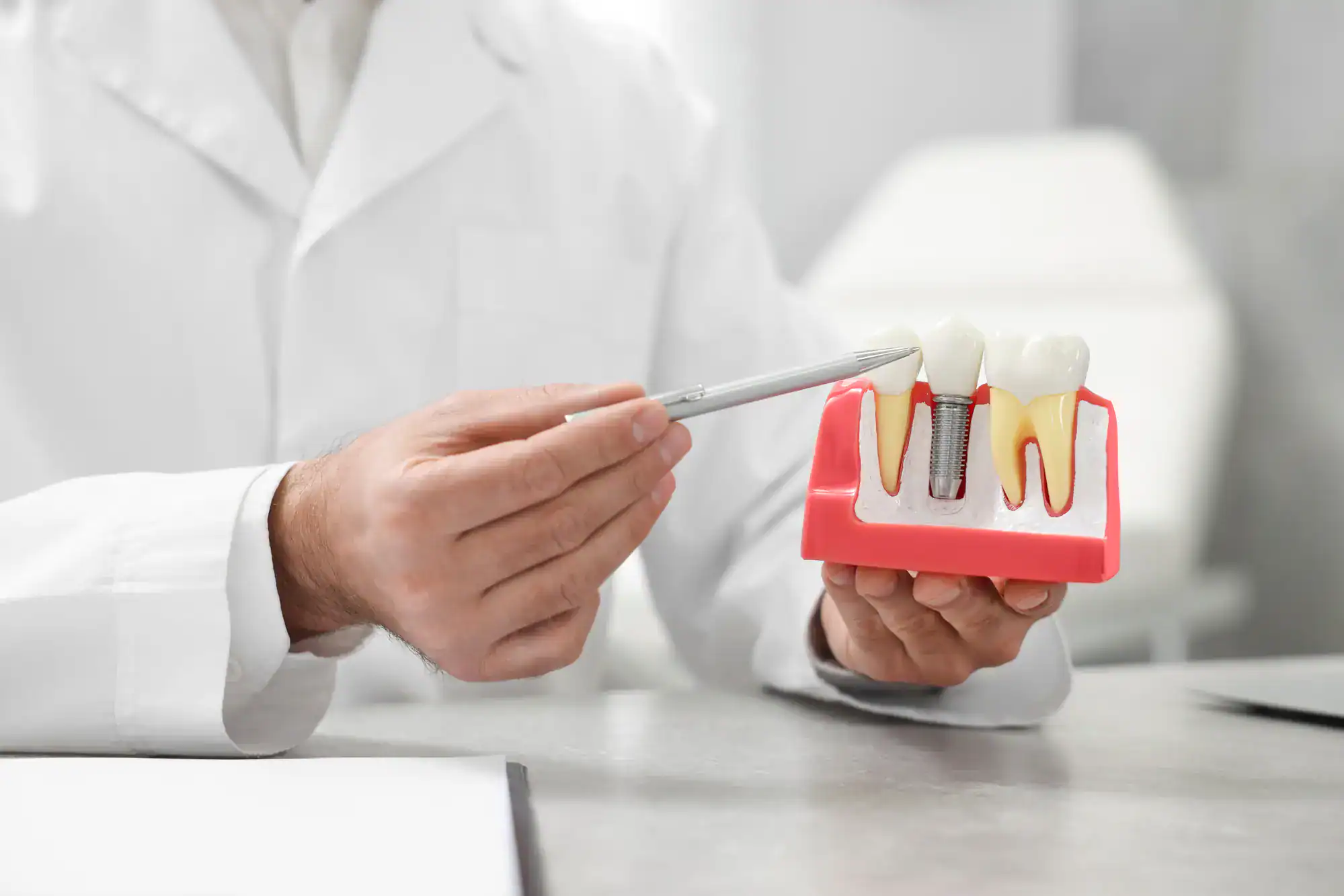
Hear from Our Customers

Missing teeth change everything. You avoid certain foods, cover your mouth when you laugh, and feel older than you are.
Dental implants in Saugerties, NY solve this completely. You get teeth that are anchored directly into your jawbone, just like your natural roots. No slipping, no clicking, no embarrassing moments.
Within months of your implant procedure, you’ll bite into an apple without thinking twice. You’ll smile in photos again. The bone loss that comes with missing teeth stops, and your face keeps its natural shape and support.
Dr. Scott Kupetz has been placing dental implants for Saugerties residents and throughout Ulster County for years. We understand that choosing implants is a big decision, both financially and personally.
That’s why every consultation starts with understanding your specific situation. Not everyone needs the same solution, and we won’t recommend treatments you don’t need.
Our practice focuses on implant dentistry because we’ve seen how dramatically it changes patients’ lives. From single tooth replacements to full mouth reconstructions, we’ve helped hundreds of people in the Hudson Valley get their confidence back.

Your dental implant process starts with a comprehensive consultation and 3D imaging to plan your treatment precisely. Dr. Kupetz explains exactly what your procedure will involve and answers every question you have.
During the implant placement, a small titanium post is positioned in your jawbone where your tooth root used to be. This is done under local anesthesia, and most patients are surprised by how comfortable the process is.
Over the next few months, your implant fuses with your bone in a process called osseointegration. Once this healing is complete, your custom crown is attached. The entire process typically takes 3-6 months, but you’ll have temporary teeth if needed so you’re never without a smile.

Ready to get started?
Single tooth implants replace one missing tooth without affecting your healthy adjacent teeth. Unlike bridges, there’s no grinding down of neighboring teeth, and cleaning is just like brushing and flossing normally.
Full mouth dental implants, including All-on-4 treatment, can replace all your teeth with just four strategically placed implants per arch. This is often the best solution for patients with multiple missing teeth or failing dentures.
Implant-supported dentures give you the stability of implants with the convenience of removable teeth. They snap securely into place but can be removed for cleaning. Many Saugerties patients choose this option as a more affordable alternative to individual implants.

Dental implant cost varies based on how many teeth you’re replacing and what additional procedures you might need. A single implant typically ranges from $3,000 to $5,000, including the implant, abutment, and crown.
Full mouth dental implants using All-on-4 technology generally cost between $15,000 and $25,000 per arch. While this seems expensive upfront, implants often cost less over time than bridges or dentures that need regular replacement and adjustments.
We provide detailed cost estimates during your consultation and offer financing options to make treatment affordable. Many dental insurance plans now cover a portion of implant treatment, especially when it’s the most appropriate solution for your oral health.
Dental implants have a success rate over 95% and can last 20-30 years or even a lifetime with proper care. The titanium implant itself rarely fails once it’s integrated with your bone.
The crown attached to your implant may need replacement after 10-15 years, similar to any dental restoration. This is normal wear and much less invasive than the original implant placement.
Your implant’s longevity depends on maintaining good oral hygiene, regular dental checkups, and avoiding habits like teeth grinding or chewing ice. Most patients find that caring for implants is easier than caring for dentures or bridges.
Most adults with missing teeth are candidates for dental implants, but several factors determine your eligibility. You need sufficient bone density in your jaw to support the implant, which we evaluate with 3D imaging.
Good overall health is important because implant placement is a surgical procedure. Conditions like uncontrolled diabetes or heavy smoking can affect healing, but they don’t automatically disqualify you from treatment.
Age isn’t typically a barrier – we’ve successfully placed implants in patients from their twenties to their eighties. Even if you’ve been told you don’t have enough bone, procedures like bone grafting can often make implants possible.
All-on-4 dental implants use four strategically placed implants to support a full arch of teeth, while individual implants replace each missing tooth with its own implant. All-on-4 is more cost-effective when you’re missing most or all of your teeth.
Individual implants are ideal when you have several healthy teeth remaining. Each implant functions independently, so if one ever has a problem, it doesn’t affect the others.
All-on-4 treatment can often be completed faster, sometimes with temporary teeth placed the same day as your implants. Individual implants require more surgical appointments but offer the most natural function and appearance for each replaced tooth.
Most patients are surprised by how comfortable dental implant surgery is. The procedure is performed under local anesthesia, so you won’t feel pain during treatment. Many patients describe the discomfort as less than having a tooth extracted.
After surgery, you’ll have some swelling and mild discomfort for a few days. Over-the-counter pain medication is usually sufficient, though we may prescribe stronger medication if needed.
The key to comfortable healing is following post-operative instructions carefully. This includes eating soft foods, avoiding the surgical site when brushing, and taking prescribed medications as directed. Most patients return to normal activities within 2-3 days.
Caring for dental implants is remarkably similar to caring for natural teeth. You brush twice daily with a soft-bristled toothbrush and floss regularly around the implant crown.
The main difference is paying extra attention to the gum line around your implant. Bacteria can accumulate here and cause peri-implantitis, which is similar to gum disease around natural teeth.
Regular dental cleanings and checkups are essential for long-term implant success. We monitor your implants at each visit and can detect any issues early. Most patients find that maintaining implants is easier than caring for bridges or dentures.
Other Services we provide in Saugerties